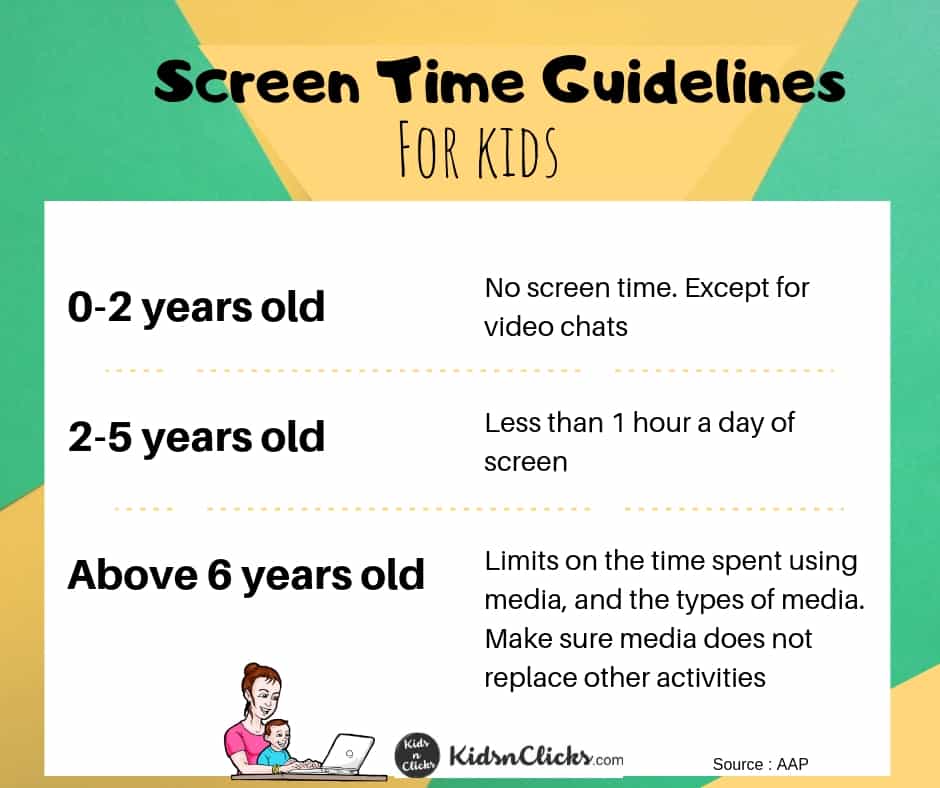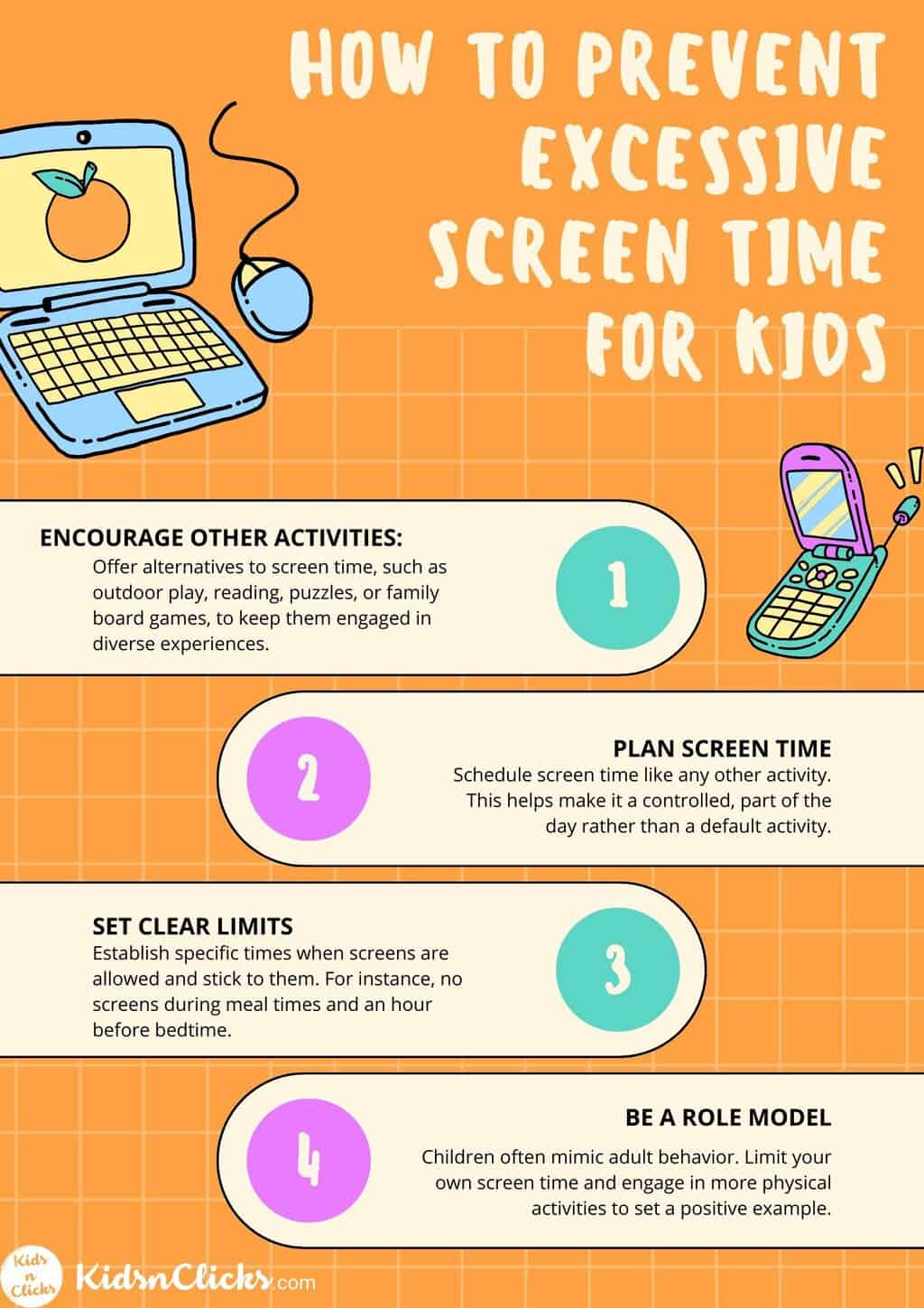- Impact of Excessive Screen Time:
- Excessive screen time hampers children’s creativity and imagination, as indicated by a survey revealing a decline in imaginary friends among kids.
- Screen Time Guidelines:
- Follow national guidelines, like the UK’s Royal College of Paediatrics and Child Health and the American Academy of Pediatrics, to set appropriate screen time limits based on age and quality of content.
- Preventing Excessive Screen Time:
- Select age-appropriate and educational screen activities, set clear rules for screen time, include alternative activities in schedules, and be a positive screen time role model.
- Encouraging Unplugging:
- Counter excessive screen time by introducing offline activities, such as mindfulness practices like journaling, to promote reflection and gratitude among children.
A report by the Independent Paper found that excessive screen time dampens children’s imagination.
The survey of 1,000 nursery workers found that screen time negatively impacts children’s creativity.
Other Findings from the survey:
- The poll also found that less than 48% of kids have an imaginary friend.
- 72% of nursery workers believe far fewer children have imaginary friends compared to 5 years back
- 63% of nursery workers believe screen time is to be blamed for this.
Before removing your kid’s devices, remember that the keyword here is excessive.
We all know too much of something is never good. The same goes for screen time.
Many would argue that technology can help with a child’s development. I believe using the right app technology can facilitate creativity.
However, I also believe excessive screen time is unsuitable for a child
It limits a child’s ability to use their imagination and be creative by being bored. Such as, creating an imaginary friend or even a story they can tell so they can entertain themselves.
Related: How to balance toddler screen time and encourage independent play
Don’t forget to get this free copy
Why allow your child to be bored
According to Dr Vanessa Lapointe, a psychologist, kids should be able to sit through their boredom to hear themselves.
Being surrounded by nothing can evoke something alive on the inside.
The problem children face growing up with screen is that it is readily available and increasingly becoming a numbing outlet.
Hence, excessive screen time is becoming a problem in many households.
The key to raising kids in a digital world is to help them find the right screen time balance and eventually teach children to self-regulate.
Check out the Happy Printable Journal that would teach kids about self-confidence and gratitude.
What is the right amount of screen time:
Following the British Screen time guidelines :
The UK’s Royal College of Paediatrics and Child Health (RCPCH for short) has published some new screen time guidelines for parents.
The screen time study they are referring to is essentially television time.
There isn’t a direct answer provided- for instance, it does not specify a daily time limit- that parents are looking for.
The RCPCH stated, “There is not enough evidence to confirm that screen time harms child health at any age.”
However, the study identifies some concerns of high screen time, such as :
- A less healthy diet can be an indicator of obesity
- Depressive symptoms for those exposed to more than 2 hours of screen time
- Poor educational outcomes
The study also concludes that “the contribution of screen time to wellbeing is small when considered together with the contribution of sleep, physical activity, eating, and bullying as well as poverty.”
Following the American Screen Time Recommendations:
Here are some screen time facts according to the American Academy of Pediatrics (AAP) :
- No screen time below the age of 2 years old. But screen time is allowed for video chat with family members
- For children aged 2-5 years old, limit screen time to one hour a day and choose high-quality programs
- For children ages six and older, place consistent limits on the time spent using media and the types of media, and make sure media does not replace adequate sleep, physical activity, and other behaviors essential to health.
Related: If you are a mom feeling guilty about your kid’s screen time, then read this article and stop that guilt.
How to prevent excessive screen time:
Reducing excessive screen time for kids is crucial for their physical and mental health. Here are a few simple tips to help manage their digital consumption:
-
Set Clear Limits: Establish specific times when screens are allowed and stick to them. For instance, no screens during meal times and an hour before bedtime.
-
Create a Tech-Free Zone: Designate areas in your home, such as the dining room or bedrooms, as tech-free zones to encourage non-digital activities.
-
Encourage Other Activities: Offer alternatives to screen time, such as outdoor play, reading, puzzles, or family board games, to keep them engaged in diverse experiences.
-
Be a Role Model: Children often mimic adult behavior. Limit your own screen time and engage in more physical activities to set a positive example.
-
Use Apps Wisely: Utilize parental control apps to monitor and limit the amount of time your child spends on devices.
-
Plan Screen Time: Schedule screen time like any other activity. This helps make it a controlled, part of the day rather than a default activity. You can use the list here to find favorable screen time with your child and how it can evoke creativity in your child.
-
Educate About the Impact: Teach your children about the effects of excessive screen time on their health and wellbeing to help them understand why limits are necessary.
-
Encourage Social Interactions: Promote in-person playdates and activities with friends and family to emphasize the importance of face-to-face
Download the smartphone self-evaluation toolkit for your kids, which can help prevent excessive screen time.
How to get kids to unplug:
If you think your child is getting excessive screen time, find offline activities they like to get them to unplug.
I am a firm believer in practicing mindfulness for children who are growing up in a tech world.
This would mean getting them to write in a journal for a few minutes a day before bedtime.

There are also other cheap indoor activities you can explore. They include activites like sensory bins, outdoor camping, rock painting and many more.

Was this helpful?
Good job! Please give your positive feedback
How could we improve this post? Please Help us.






